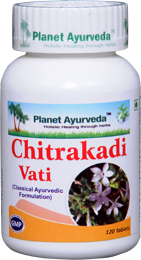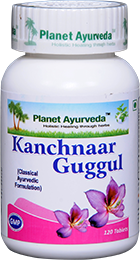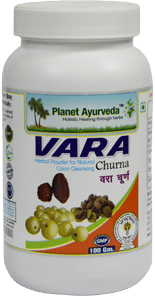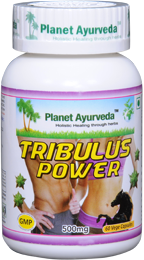How to Treat Hernia in Ayurveda? – Hernia Treatment in Ayurveda
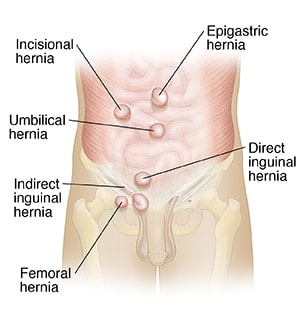
What is a Hernia?
Hernia is a condition in which internal organs in the abdomen gets displaced & protrude outwards. It gives rise to swelling in the particular region. As per Ayurveda it is correlated with “Antra Vriddhi”. In hernia fatty tissue or organ squeezes out through weak spot in a surrounding muscle or connective tissue which is known as hernia.
What are the Different types of Hernia?
1. Inguinal Hernia
It is the most common type of hernia in both men and women. Inguinal hernia occurs in the abdomen near groin area it develops when fatty or intestinal tissues push weak abdominal wall near right or left inguinal ring.
In indirect inguinal hernia two-third part of inguinal canal is entered through internal inguinal ring & in direct inguinal hernia one-third part of hernia pass through inguinal canal.
Signs and symptoms related to inguinal hernia:
- A bulge near pubic bone which become obvious when you are upright when you cough or strain.
- A burning sensation at the bulge.’
- Pain in groin area.
- Heavy sensation in your groin.
- Pain and swelling around the testicles when intestines descends into the scrotum.
- Weakness or pressure in groin area.
2. Umbilical Hernia
In this type of hernia intestines sticks out through opening in abdominal muscles through umbilical cord. This type hernia affects both infants and adults.
Signs and symptoms related to umbilical hernia:
- Soft swelling and bulge near the umbilicus.
3. Femoral Hernia
When a tissue pushes through wall of femoral canal (femoral artery, small veins and nerves) it is known as femoral hernia. It will appear near the groin or thigh.
Signs and symptoms related to femoral hernia:
- Pain
- Discomfort
- A bulge may be visible in the groin area
4. Diaphragmatic Hernia
This hernia is a birth defect that occurs when there is an abnormal opening in the diaphragm (muscle between the chest & abdomen). In this type of hernia opening allows part of the organs from the belly to move in chest cavity near the lungs.
Signs and symptoms related to diaphragmatic hernia:
- Pain
- Nausea
- Vomiting
- Discomfort
- Heartburn
- Belching
- Chest pain
5. Hiatal Hernia
This type of hernia occurs when upper part of stomach pushes up through your diaphragm and into your chest region.
Signs and symptoms related to hiatal hernia:
- Heartburn
- Belching
- Chest pain
- Belching
- Nausea
6. Incisional Hernia
This type of hernia is caused due to incomplete healed surgical wounds.
Signs and symptoms related to incisional hernia:
- A bulge or protrusion may be visible.
- Pain
- Discomfort
What are the Common Causes for all types of Hernia?
- Heavy weight lifting
- Incorrect posture
- Obesity
- Constipation
- Ascites
- Poor nutrition
- Smoking
- Overexertion
- Coughing
What are the Complications of Hernia?
- Inflammation
- Strangulation
- Hemorrhage
- Obstruction
- Autoimmune disorders
Treatment of Hernia without Surgery
Surgery is the usual method of treating hernia that has been suggested by doctors. But surgery causes many complications, mainly including recurrence of the hernia. There are many other side effects of hernia surgery such as the formation of seroma, inability or difficulty urinating, damage to organs or tissue and the body begins to reject the meshes.
Pain in hernia is caused by chronic inflammation and surgery is not a solution to treat inflammation. In all of them, there is an alternative treatment that treats the hernia without surgery i.e., Ayurvedic treatment. Yes, Ayurveda provides various herbs and focuses on a diet that treats hernia naturally with no risk of reoccurrence of hernia and further has no side effects.
In Ayurveda, the hernia is correlated with Antra Vriddhi. The herbs which are effective in hernia are Gokshur, Haritaki, Bibhitaki, Amalaki, Kachnar bark, Chitrak, etc and these herbs are also used to formulate the herbal products. These herbs help to strengthen the intestinal wall, improve bowel movements and decrease inflammation and pain produced by hernia. Planet Ayurveda provides the best herbal remedies for hernia.
Herbal Remedies for Hernia
Ayurveda is the best option for treatment of hernia. It balances all the three doshas (Vata, Pitta & Kapha). Planet Ayurveda offers combination of herbal products that contain various herbs. These herbs maintains all the signs and symptoms associated with hernia.
1. Mahashankh vati
These herbal tablets are prepared from herbal ingredients like Chitraka, Pippali, Maricha, Dantimool, and Shunti etc. that will manage all conditions related to hernia patients.
Recommended dosage: Two tablets twice daily with plain water half an hour after meals.
2. Chitrakadi vati
The tablets are prepared from ingredients like Shunthi (Zingiber officinale), Chitrak (Plumbago zeylanica), Pippali (Piper longum), Marich (Piper nigrum), and Chavak (Piper chaba) etc. that balances pitta dosha in the body. It helps to maintain proper digestion and is beneficial in hernia.
Recommended dosage: Two tablets twice daily with plain water half an hour after meals.
3. Kanchnaar Guggul
These herbal tablets are prepared from herbs like Kachnar bark (Bauhinia variegata), Amalaki (Emblica officinalis), Haritaki (Terminalia chebula), Bibhitaki (Terminalia bellirica), Ginger (Zingiber officinale), and Pippali (Piper longum) etc that removes extra growth. It is very beneficial in all types of hernia.
Recommended dosage: Two tablets twice daily with plain water half an hour after meals.
4. Vara Churna
This herbal churna is prepared from herbs like Haritaki (Terminalia chebula), Bibhitaki (Terminalia bellirica), and Amalaki (Emblica officinalis) that balance all three doshas (Vata, Pitta, & Kapha) in the body. Vara churna helps to maintain all the problems associated with hernia.
Recommended dosage: One teaspoonful twice daily with plain water half an hour after meals.
5.Tribulus Power
This herbal capsule is prepared from herb Gokshur (Tribulus terrestris) that helps to maintain and possesses diuretic properties. Tribulus power capsules manages inguinal hernia, it reduces pain and swelling of particular part.
Recommended dosage: Two capsules twice daily with plain water half an hour after meals.
These all are herbal remedies that will help to maintain hernia.



